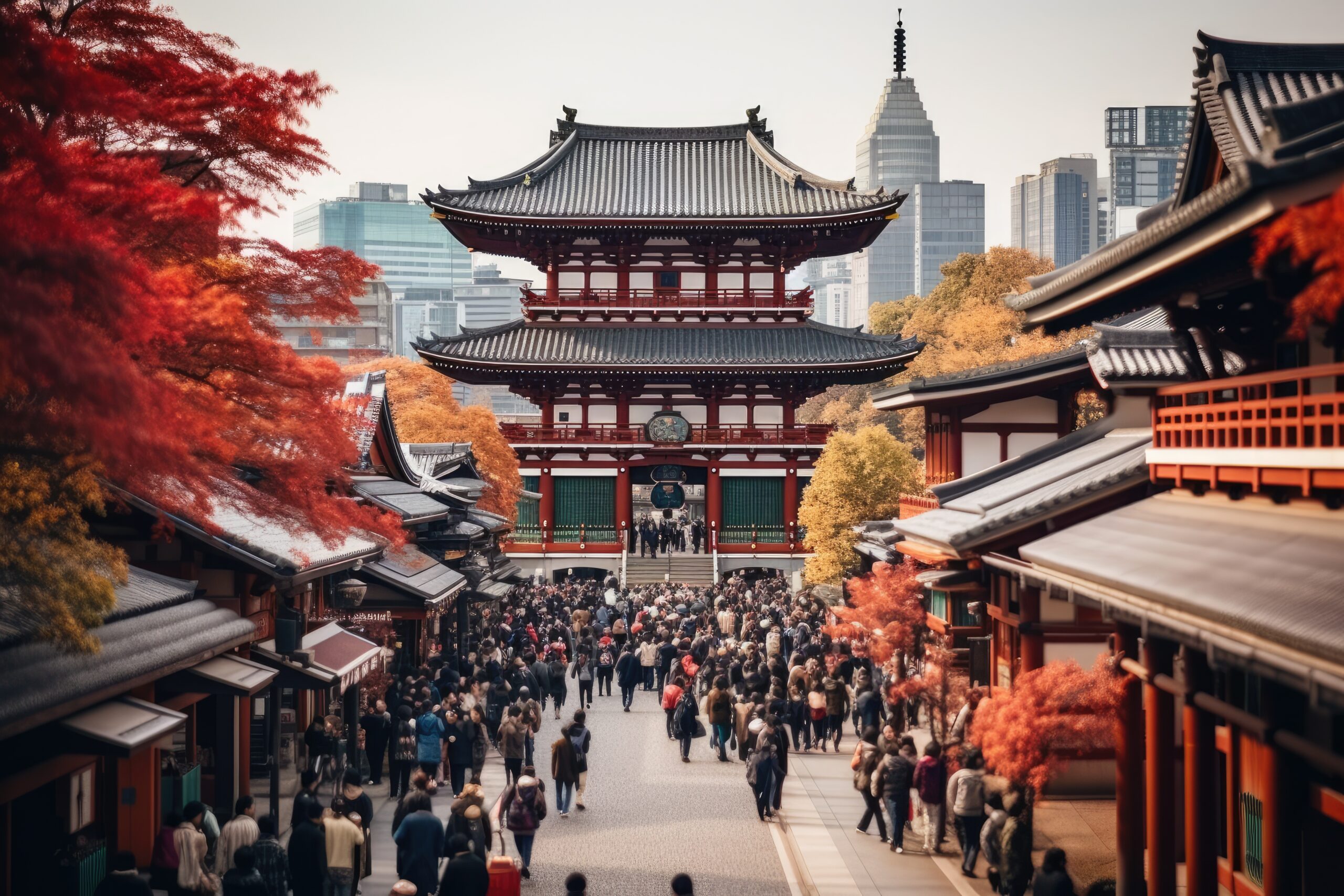
3 Day Itinerary – Tokyo
3 Day Itinerary for Wheelchair Users Visiting Tokyo, Japan
Tokyo is a dream destination for many travellers, offering a unique blend of rich history, vibrant culture, and cutting-edge modernity. Over the years, the city has made significant strides in improving accessibility, making it a more inclusive destination for wheelchair users and travellers with mobility challenges.
From iconic historic sites like the serene Meiji Shrine and the bustling streets of Asakusa to modern attractions such as the Tokyo Skytree and Shibuya’s famous crossing, Tokyo truly offers something for everyone. This thoughtfully crafted 3-day itinerary is designed to help wheelchair users and accessible travellers experience the best of Tokyo, balancing cultural immersion, modern conveniences, and a comfortable pace to ensure a memorable visit.
Don’t forget to check out our Exploring Tokyo: A Complete Guide for Wheelchair Users for more in depth information.
Day 1: Traditional Tokyo
Morning
1. Senso-ji Temple (Asakusa)
Start your Tokyo adventure at Senso-ji, the city’s oldest and most famous temple. Thanks to ramps and accessible pathways, wheelchair users can explore the stunning grounds with ease. Be sure to pass through the Kaminarimon Gate and stroll along Nakamise Street. This pedestrian-friendly area is packed with souvenir shops, traditional snacks, and an atmosphere that transports you back in time.
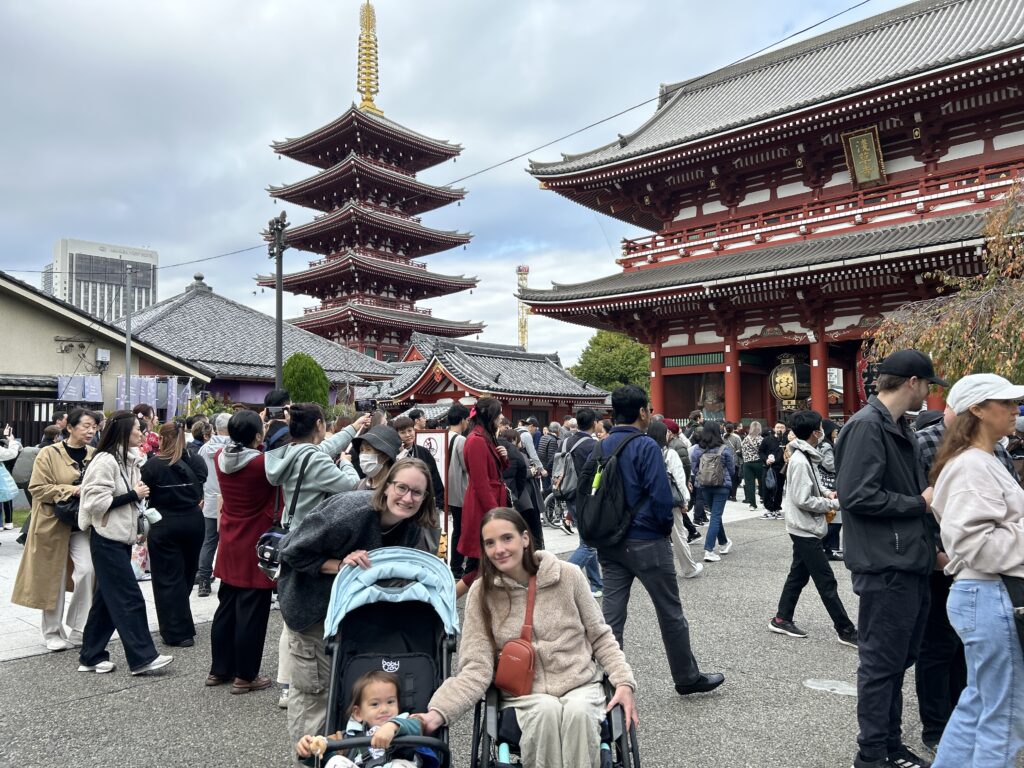
2. Sumida River Cruise
From Asakusa, head to the nearby Sumida River for a scenic boat ride. Many of the cruise options are wheelchair-accessible, offering ramps and dedicated spaces onboard. Try Tokyo Cruise for a wonderful way to enjoy stunning views of the city’s skyline while experiencing Tokyo’s waterways firsthand.
Lunch
Grab lunch at one of the many accessible restaurants in the Asakusa area. Try tempura, sushi, or other Japanese classics. We highly recommend stopping by Asakusa Gyukatsu to try their traditional gyukatsu set meal. You will not regret it!
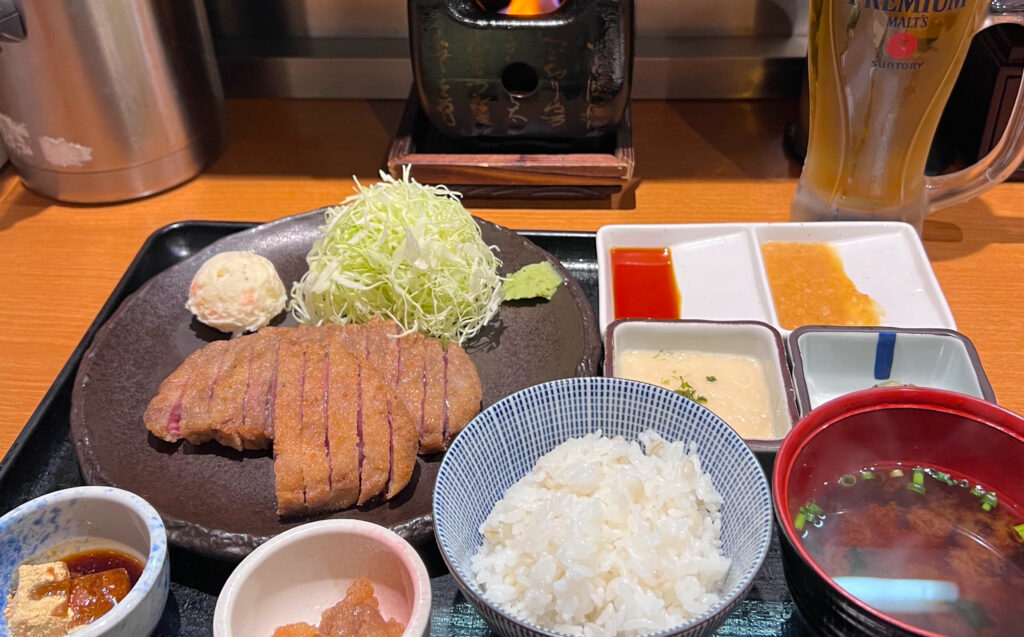
Afternoon
3. Tokyo Skytree and Solamachi Mall
Tokyo Skytree, one of the world’s tallest towers, offers breathtaking city views from its observation decks, easily accessible via elevators. Afterward, explore Solamachi Mall, a wheelchair-friendly shopping complex filled with unique stores, souvenir shops, and delicious dining options.
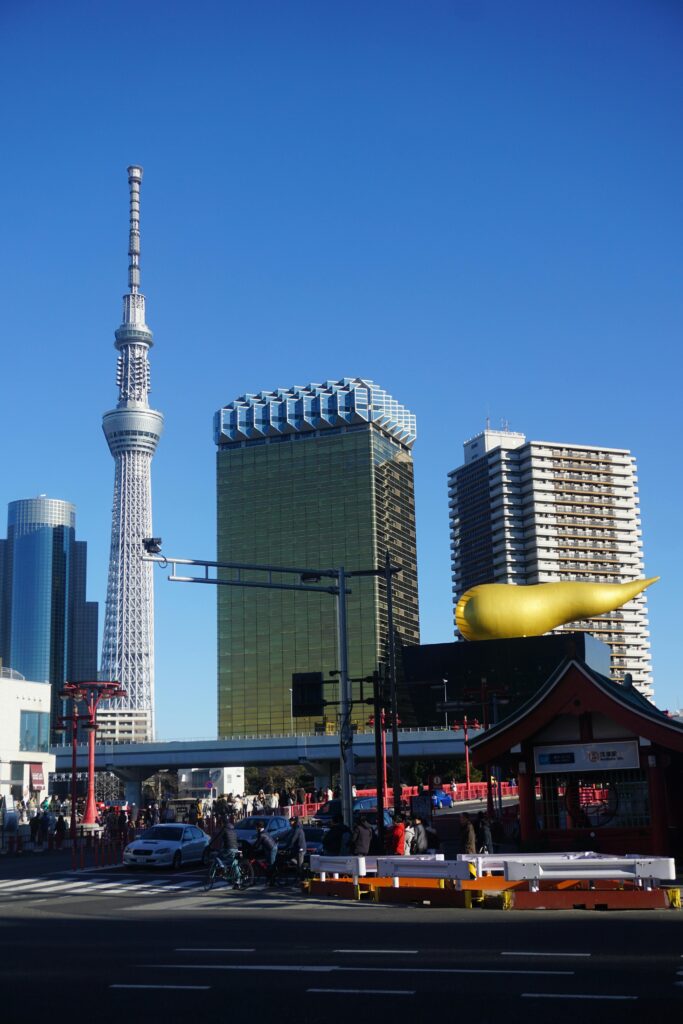
Evening – Dinner
4. Odaiba – Rainbow Bridge Views
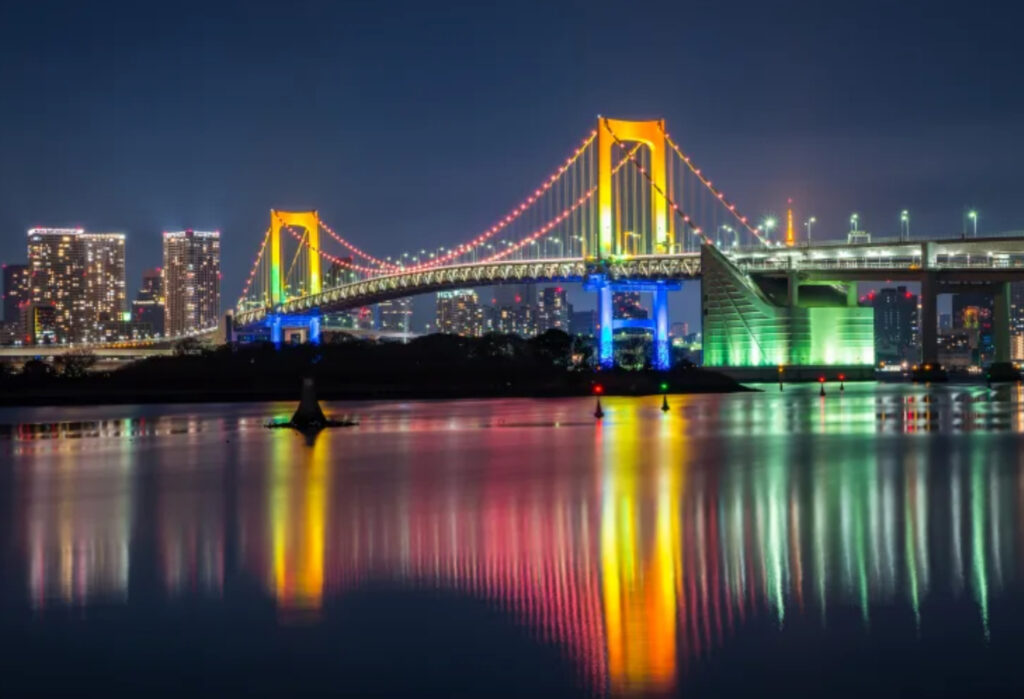
Wrap up the day in Odaiba, a man-made island known for its futuristic vibe. Travelling here is easy via the Yurikamome Sky Train. The key feature of this area is the Rainbow Bridge, arching over Tokyo Bay, linking Odaiba with the rest of Tokyo.
At night the bridge transforms into a dazzling display of multicoloured lights, set against the city’s glowing skyline—a scene so stunning, it feels like stepping into a sci-fi film set. It’s an unforgettable experience you won’t want to miss.
For dinner, enjoy fresh seafood at one of Odaiba’s waterfront restaurants or savour some yakiniku (Japanese BBQ) while soaking in the island’s unique atmosphere.
Day 2: Modern Tokyo
Morning
1. Meiji Shrine (Harajuku)
Start your morning exploring the tranquil Meiji Shrine, nestled in a serene forested setting. The paved walkways make it accessible, though a bit of assistance may be needed for inclines. Take a moment to enjoy the peaceful environment—a contrast to the busy streets of Tokyo.
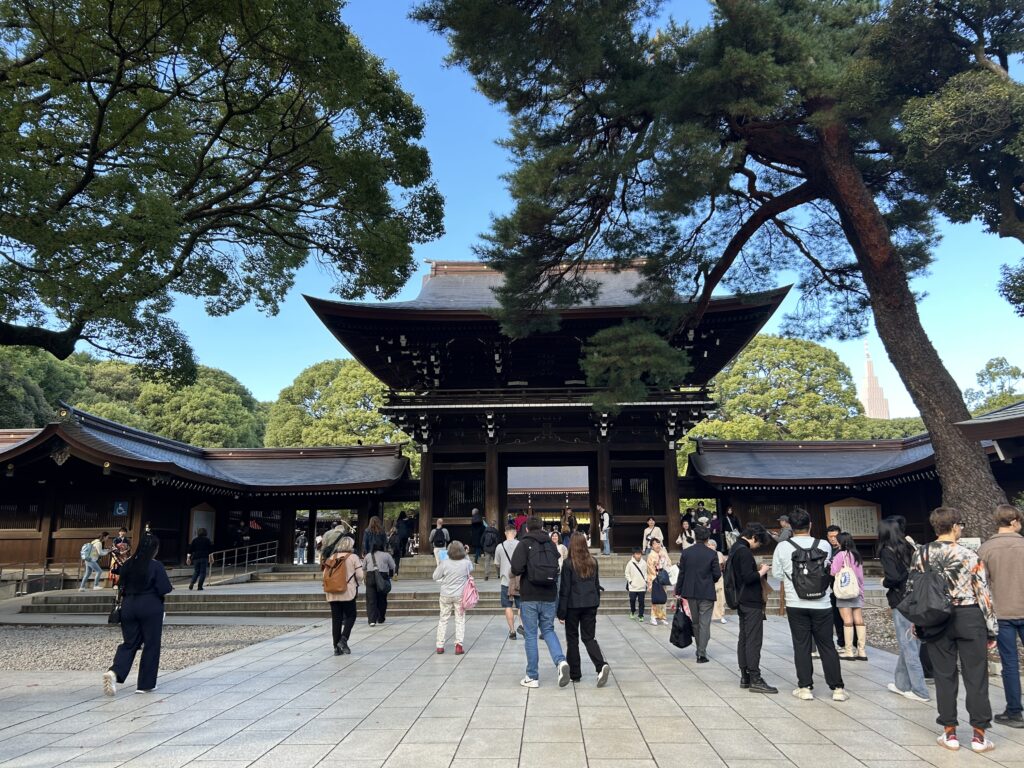
2. Takeshita Street (Harajuku)
Venture into the vibrant atmosphere of Harajuku’s Takeshita Street, famous for quirky shops, sweet crepes, and unique fashion boutiques. The wide, pedestrian-friendly streets make exploration easy for wheelchair users.
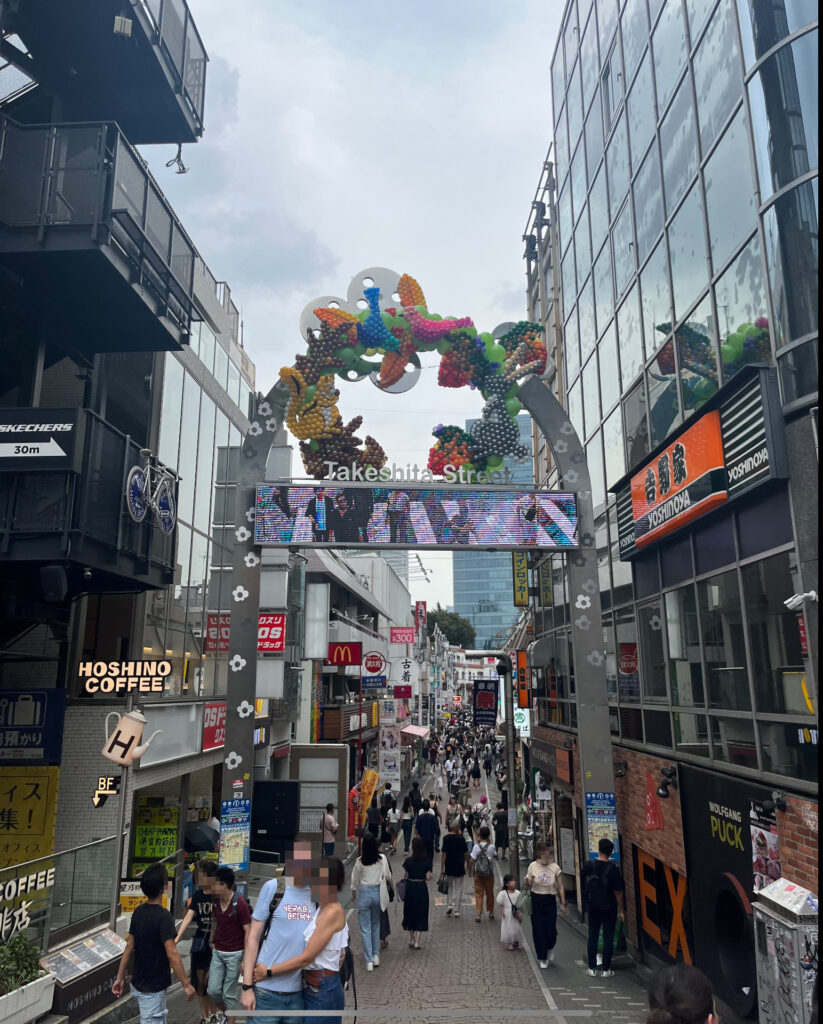
Lunch
Omotesando, Tokyo’s chic and stylish district, is nearby and filled with trendy, accessible restaurants that feature ramps and elevators.
Afternoon
3. Shibuya Scramble Crossing and Shibuya Sky
No trip to Tokyo is complete without a visit to the bustling Shibuya Scramble Crossing. Witness the chaos at ground level or head to the Shibuya Sky Observation Deck for awe-inspiring views of the crossing and the city beyond (be sure to pre book your ticket well in advance – fees are refunded for disabled visitors).
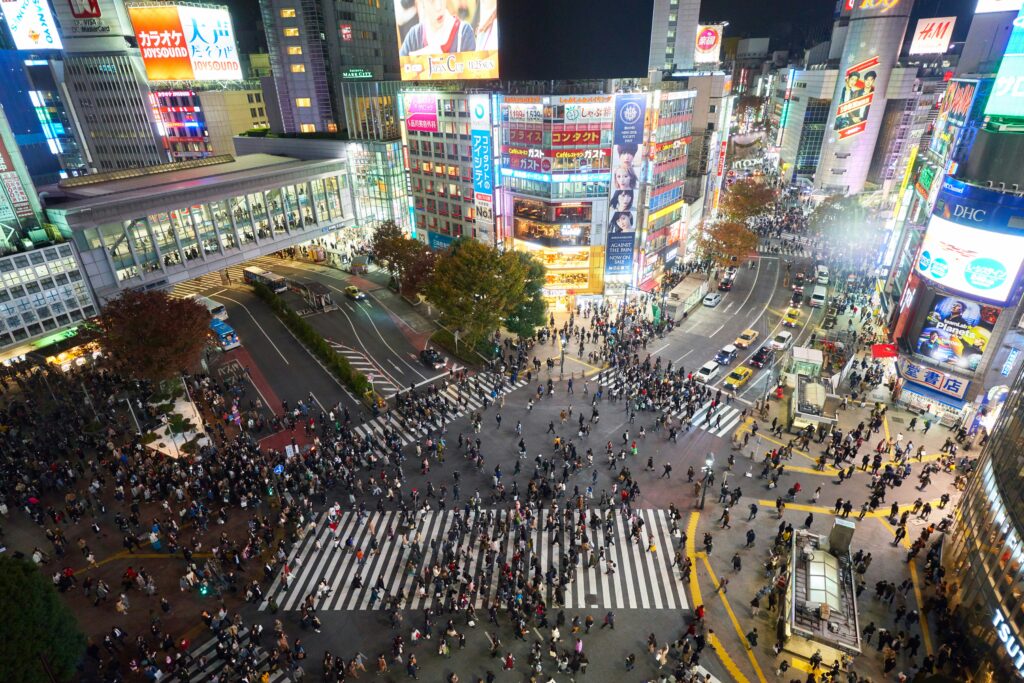
Evening – Dinner
4. Roppongi Hills and Mori Art Museum
End your day at Roppongi Hills, a vibrant district known for art and fine dining. The Mori Art Museum, located in the Roppongi Hills complex, features wheelchair-friendly facilities and modern, thought-provoking exhibits. Enjoy dinner at one of the accessible restaurants in the area before heading back.
We recommend Roppongi Ukai Tei, an amazing teppanyaki establishment in Roppongi Hills.
Day 3: Cultural Tokyo
Morning
1. Ueno Park and Museums
Dive into Tokyo’s cultural scene at Ueno Park, home to several museums, including the Tokyo National Museum and the National Museum of Nature and Science. With paved walkways and accessible restrooms, navigating Ueno Park is a breeze.
Lunch
Enjoy lunch at an accessible café or restaurant near the park. Many options are available where staff are accustomed to assisting travellers with varying needs.
We recommend Ueno Seiyoken offering a casual cafeteria type dining, or a more traditional, grill restaurant, all located within the park.
Afternoon
2. Akihabara (Electric Town)
For a change of pace, head to Akihabara, a lively district filled with anime, manga, and electronics stores. Many of the shops and buildings offer ramps or elevators, making it easy to explore this bustling hub of pop culture.
Evening – Dinner
3. Tokyo Tower
End your trip on a high note at Tokyo Tower, a beloved landmark offering stunning views of the city. Elevators provide wheelchair access to the observation decks, and helpful staff are always available to assist.
Have dinner at one of the many restaurants in and around this wonderful landmark. We highly recommend enjoying your final dinner in Tokyo at the Katsura Steak House, and treat yourself to the Washoku & Teppanyaki Course.
Additional Tips for Wheelchair Users
- Public Transport: Tokyo’s public transportation system is one of the most accessible in the world. The metro features elevators, priority seating, and ramps, while buses also offer ramps and dedicated wheelchair spaces.
- Accessibility Maps: Utilise the “step free” route planning option in Google Maps or Apple Maps to plan each days journeys. You can also download Tokyo Metro’s accessibility map or similar resources for detailed station layouts and facilities.
- Accessible Restrooms: Many major attractions and public spaces in Tokyo provide wheelchair-friendly restroom facilities. Download the Accessaloo App to help locate wheelchair accessible toilets in each location.
Tokyo’s efforts to improve accessibility ensure that wheelchair users can enjoy a rich, hassle-free travel experience. From historic landmarks to modern wonders, the city has something for everyone.
Make Your Tokyo Adventure Unforgettable
Tokyo is a city that merges tradition and innovation seamlessly, offering an enriching experience for all travellers, including wheelchair users. With this 3-day itinerary, you can explore the best of the city without sacrificing comfort or convenience.
Start planning your trip today and share your favorite Tokyo moments with the accessible travel community!
